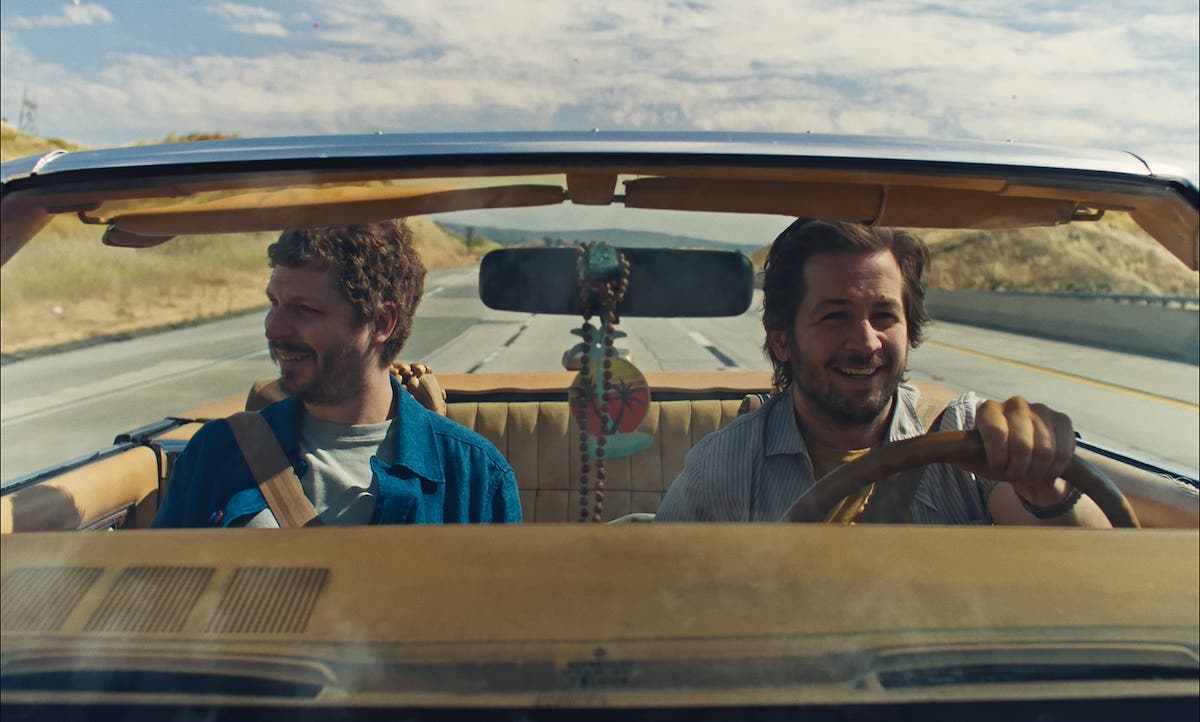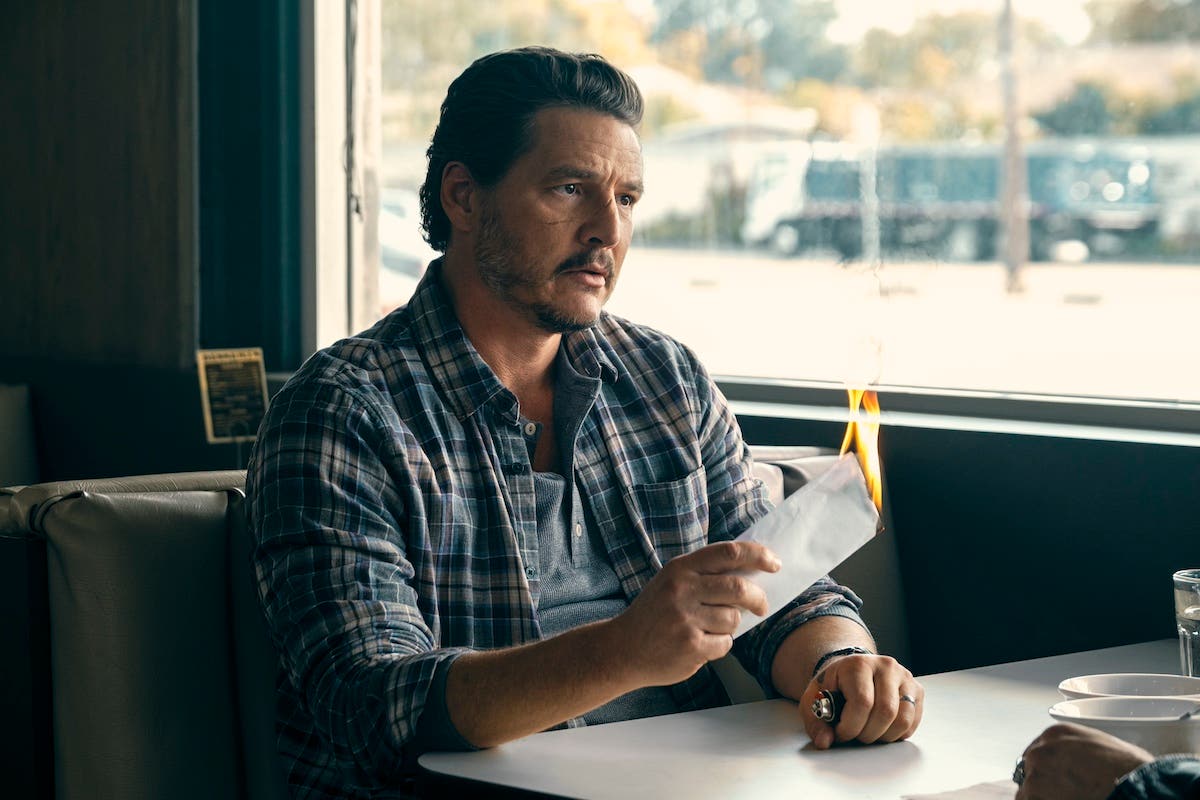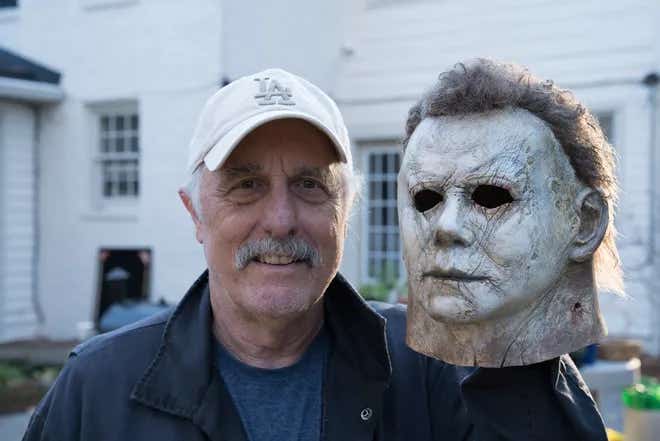Behind the Lines with DR: Film School
I’d utterly failed at my first attempt at getting in to the famed USC film school. Upon reflection, it was a horrible application—all kiss ass, full of ignorant naiveté, and…
I’d utterly failed at my first attempt at getting in to the famed USC film school. Upon reflection, it was a horrible application—all kiss ass, full of ignorant naiveté, and grossly immature. Had I been in charge of admittance, I sure as hell wouldn’t have accepted me.
Foolishly, though, the university later accepted me as a transfer student—an undeclared boob. But that’s when a new plan formed. I’d attend USC and reapply to the film school from the inside.
I thought it was bold and inventive idea.
On orientation day, transfer students were divided into smaller groups. In my own group of twenty or so—and I’m not exaggerating here—nine of my fellow transferees had the same genius battle plan. I believe we were all equally gob smacked at our bad luck. Instinctively, though, we formed a group which grew to sixteen. As our first semester unfolded, we threw parties and even organized our own private film festival, consisting of our prior works. It was a supportive crew. As each of us reapplied along with hundreds of other undeclared Trojans (not to mention the thousands trying to gain film school access from beyond the campus grounds) we wished each other the best of luck.
One late October afternoon, I received a phone message from the film school’s admissions office. There was an issue with my high school transcript. I sprinted from my dorm room and ran all the way to the gathering of World War 2 Quonset huts that—at the time—made up the actual film school. I knocked at the admission director’s door and introduced myself.
“Oh yes,” she said, suddenly remarking on the sweat dripping off of me. “Did you run all the way down here?”
“I did, yeah.”
“You didn’t have to,” she said. “What I have to ask could’ve been done over the phone.”
“That’s okay,” I lied. “If there’s a problem with my high school transcript, I thought I could explain.”
“Explain why it’s missing from your application?”
“Yes. Exactly.”
“So you know that it wasn’t included?”
“My high school transcript,” I sadly admitted, “It’s not worth looking at.”
“Still need it for your app to be considered.”
“My grades were really lousy.”
“How bad?”
“C average.”
“Oh,” she said, maybe embarrassed for me. “Well, your junior college grades are excellent.”
“Exactly.”
“Usually high school grades go down in college. So that’s a good thing.
“Great!”
“Still need your high school transcript even it’s as bad as you say.”
“Oh, it is,” I assured her. “But I’ll get it to you.”
“And where are your SAT scores?” she asked, shuffling through my application.
“I didn’t take it.”
“You didn’t take the SAT?”
“I don’t test well in math.”
“How in the world did you get into USC without taking the SAT?”
Ugh. I explained to her that with a little elbow grease I’d discovered a relatively unknown California statute that said state colleges needn’t require junior college transfers with X number of credits to submit SAT scores.
“But this university’s not a state school,” she said flatly.
“I know. But it’s a school in the state of California and… well… think I might’ve slipped that past the main admissions office.”
“Wow,” she said.
“I know.”
“Film school has its own admission requirements,” she said. “And we need your SAT scores.”
“Don’t have ‘em,” I shrugged before braving a single, yet salient point. “But if I might argue this one thing? What does an SAT score have to do with the ability to make movies anyway?”
“I hear you,” she said, her expression pretty much a flat line of emotion. “Nice meeting you.”
I shook her hand and walked back to my dorm. My mind raced. Had I blown it?
Christmas break neared. And along with it, rejection letters began to land in campus mailboxes. One by one, members of my film clique began to open thin envelopes with single page letters, each thanking the applicant for his or her interest in attending USC film school while crushing their dream with a succinct “I’m sorry to inform you…”
To a person, everybody I’d come to meet and like was summarily rejected. Everybody but me. That’s because, as it became abundantly clear with each successive pass by my building’s mail carrier, I didn’t even rate a rejection letter. But why? Because I hadn’t taken the damned SAT? Had she merely dumped my application into the waste bin the moment I’d removed my sweaty body from her office?
I was worse than crushed. I was beaten; pummeled into a bloody, mental mess, and left to bleed in the gutter.
I didn’t even rate a rejection.
I flew up north for the holiday. Refused all questions from my family having to do with my future college plans. Even avoided my old friends, choosing instead lie in front of the TV, wallowing in my defeat.
Then on Christmas Eve, hope somehow began to flicker. As I lay in bed a thought landed between my ears. The kind of thought that would keep me awake until dawn. I began to wonder if, on my film school application, I had listed my home address instead of my dorm’s. Or perhaps both by accident. I couldn’t remember. But it made sense. I couldn’t recall ever listing my dorm address as anything permanent. Could the reason for my not receiving any kind of acceptance or rejection from the film school be simply because of the address I’d scribbled in some box? Considering all those damned college loan apps I had to fill in, who knows what I’d put down as my contact address?
And…
If I’d received a rejection letter at my home address, surely my parents would’ve forwarded it on to me. But an acceptance letter? Those envelopes were usually fat and filled with information on courses and registration deadlines, etc. Could my parents have held back such a letter just to present it to me on Christmas morning? I began to picture myself on walking into my parent’s living room and seeing an envelope with a University of Southern Cal emblem for a return address, tucked neatly behind the antique wind-up clock on the fireplace mantle. Precisely where my mum would leave such a welcome surprise from Santa.
By sunrise, that pinpoint of hope had turned into a crack followed by a spring that grew into a fountain. So buoyed by my sudden mood change, I rose early, assisted my mother in making coffee, helped her organize our traditional family breakfast, then sat back and waited. I felt like an eight-year-old, spending our entire and tortuous gift giving ritual waiting for that acceptance envelope to appear. Surprise! Big grins would crease my parents’ faces as I basked in my film school glory.
But no envelope was ever presented. No big surprises. No tumult of family congratulations. Christmas closed with the resounding and hollow thud called failure.
Shortly after the first of the year, I returned to USC in a grand emotional funk and faced two weeks of finals. With a broken heart, I began to reinvestigate my options. Apply to other, less revered film schools? Or stay at USC by accepting an offer to join the BFA Drama program with an emphasis in directing. It wasn’t film study. But at least they wanted me, having already expressed their interest after I’d accidentally wowed the school’s director as a guest performer in a pal’s scene study class.
Morose and moving through my end-of-semester classes like the walking dead, I returned one late and overcast afternoon to my dorm to find my roommate napping. Because I needed to hear some noise other than his snoring, I grabbed a stack of vinyl and started to exit.
“Hey,” grumbled my roommate.
“I’m leaving,” I said.
“Somebody from the cinema school called,” he continued, too groggy to pulls his face off the pillow. “Said somethin’ about you needing to pick up registration cards.”
“What?”
“Yeah,” he said. “Thought you said you didn’t get in.”
“I didn’t.” I was monumentally curious about why the film school, so full of insult it hadn’t even the courtesy to waste a stamp on my rejection, was calling me about registration cards.”
“They left a number,” said my roomie.
I sat, pondered the phone, then dialed.
“Oh Doug, yeah,” said the voice at the other end. “Thanks for calling. We need to pull class cards for you.”
“Why would you need to do that?” I asked.
“Sorry. Maybe your roommate didn’t give you the message,” said the voice. “This is Carl from the School of Cinema. Turns out we were shorthanded this year and didn’t have time to send out acceptance notices. There’s only twenty of you and you’re the only transfer that got in. So we just decided to call.”
“You’re saying I was accepted?”
“Yes. You’ve been accepted. Film school guarantees your classes so you have to get over here so we can pull your registration cards. That work for you?”
“Sure,” I said, not even smiling yet. “That works just fine for me. I guess I’ll be right over.” I hung up. Rose numbly. And this time, walked ever-so-slowly the distance to those Quonset huts, hoping maybe it would all sink in before landing at the film school doorway where, emblazoned above the entry was the graffiti scrawl that famously read, “REALITY ENDS HERE.”
Articles and Tools to Help:
Doug Richardson cut his teeth writing movies like Die Hard, Die Harder, Bad Boys and Hostage. But scratch the surface and discover he thinks there’s a killer inside all of us. His Lucky Dey books exist between the gutter and the glitter of a morally suspect landscape he calls Luckyland—aka Los Angeles—the city of Doug’s birth and where he lives with his wife, two children, three big mutts, and the dead body he’s still semi-convinced is buried in his San Fernando Valley back yard. Follow Doug on Twitter @byDougRich.







